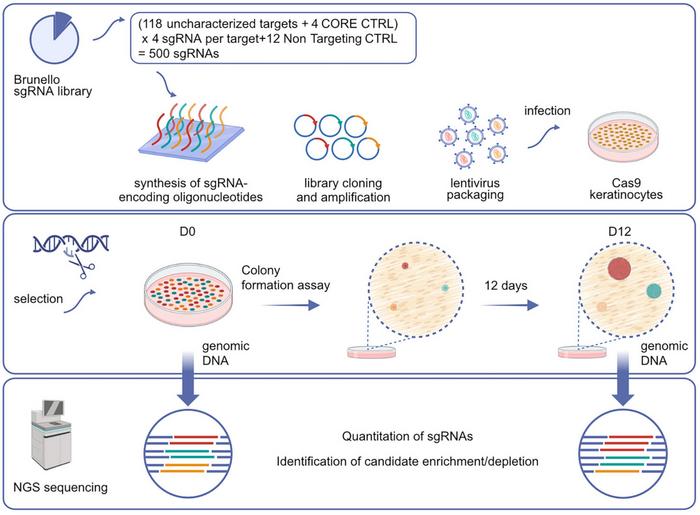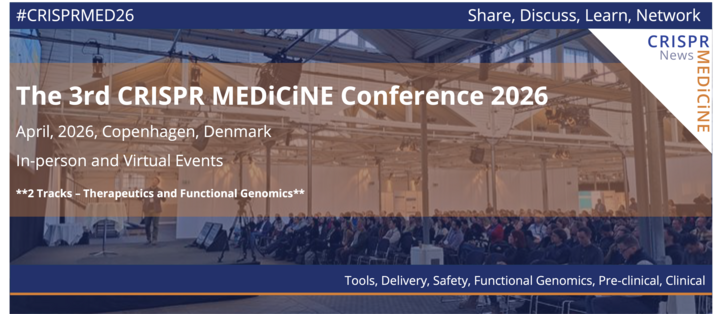CRISPR Screen Identifies SFRP1 as Key Regulator of Skin Cell Proliferation
Using a comprehensive secretome analysis coupled with an innovative CRISPR screening approach, scientists at University of California Irvine have discovered that Secreted Frizzled-Related Protein-1 (SFRP1) restrains epidermal progenitor cell multiplication by inhibiting Wnt signaling and blocking ectopic expression of leukemia inhibitory factor (LIF).
“Collectively, our study expands our knowledge of the keratinocyte secretome, establishes a novel CRISPR screen to assess the function of non-cell autonomous factors, and highlights SFRP1's role in regulating epidermal balance”Cheng et al.
The human epidermis requires precise regulation of stem cell renewal to maintain skin health. While secreted proteins play essential roles in this process, the full repertoire of keratinocyte-produced factors has remained largely uncharacterized. In this study, researchers first identified 406 proteins secreted by human keratinocytes, revealing their diverse functions in adhesion, migration, proteolysis, and signal transduction.
The secretome – the complete set of proteins secreted by a cell type – represents a crucial component of cellular communication. Unlike intracellular proteins, secreted factors can influence distant cells through paracrine signaling, construct the extracellular matrix, and mediate tissue defense mechanisms. This secretome analysis provides the most comprehensive profile to date of proteins released by human epidermal keratinocytes.
»Collectively, our study expands our knowledge of the keratinocyte secretome, establishes a novel CRISPR screen to assess the function of non-cell autonomous factors, and highlights SFRP1's role in regulating epidermal balance,« the authors state in the manuscript.

To assess the functions of previously unstudied secreted proteins, the team developed a novel colony formation-based CRISPR screen specifically designed to identify factors regulating epidermal stem cell renewal (see Figure 1). The screen revealed SFRP1 as the most potent inhibitor of proliferation among the candidates tested.
Through detailed molecular analysis, the researchers demonstrated that SFRP1 is preferentially expressed in quiescent basal keratinocytes, where it functions as a brake on proliferation. When SFRP1 was depleted, human skin organoids developed increased basal layer undulations and heightened cell proliferation. The team also discovered that SFRP1's inhibitory effect occurs partly through suppression of LIF, a cytokine known to promote epidermal hyperplasia.
These findings align with clinical observations showing reduced SFRP1 expression in hyperproliferative skin conditions like psoriasis and squamous cell carcinoma, suggesting its potential relevance in skin disease pathogenesis.
The research was led by Dr. Bryan Sun and colleagues at the University of California Irvine's Department of Dermatology. It was published in Cell Death and Disease on 3 May, 2025.
To get more CRISPR Medicine News delivered to your inbox, sign up to the free weekly CMN Newsletter here.
Tags
CLINICAL TRIALS
Sponsors:
Poseida Therapeutics, Inc.







